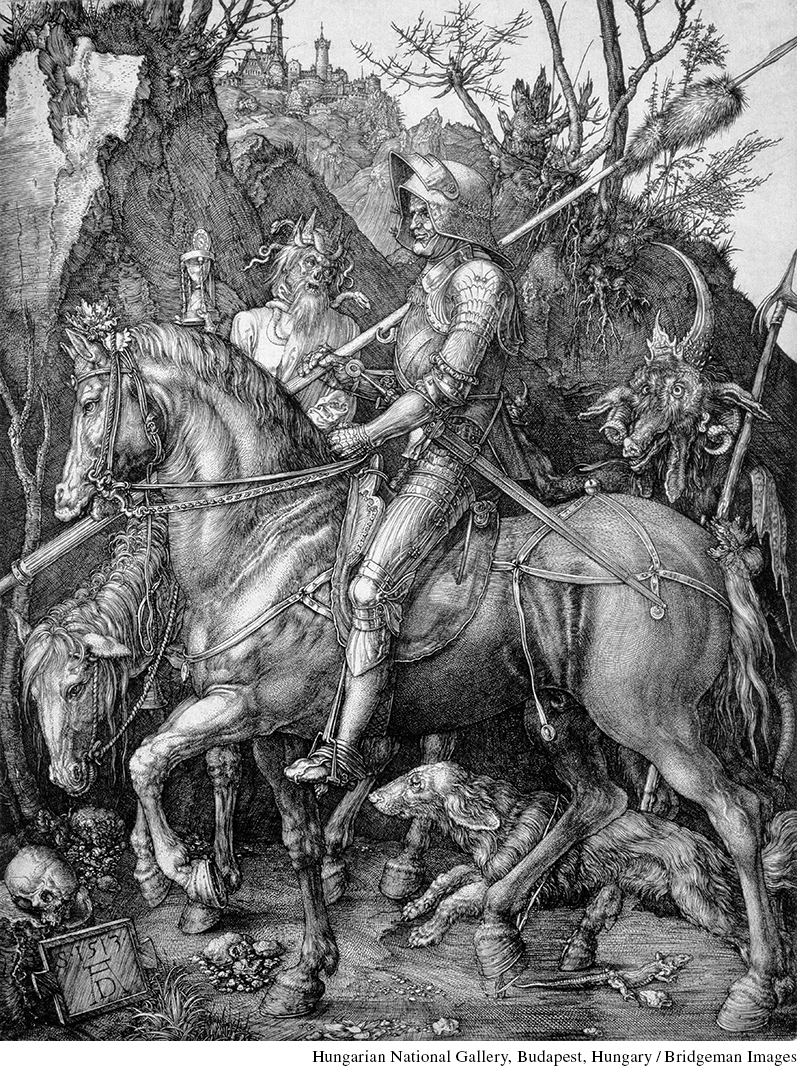Popular Piety and Christian Humanism
Printed Page 448
Important EventsPopular Piety and Christian Humanism
The Christianizing of Europe had taken many centuries to complete, but by 1500 most people in Europe believed devoutly. However, the vast majority of them had little knowledge of Catholic doctrine. More popular forms of piety—such as processions, festivals, and marvelous tales of saints’ miracles—captivated ordinary believers.
Urban merchants and artisans, more likely than the general population to be literate and critical of their local priests, yearned for a faith more meaningful to their daily lives and for a clergy more responsive to their needs. They generously donated money to establish new preaching positions for university-trained clerics. The merchants resented the funneling of the Catholic church’s rich endowments to the younger children of the nobility who took up religious callings to protect the wealth of their families. The young, educated clerics funded by the merchants often came from cities themselves. They formed the backbone of Christian humanism and sometimes became reformers, too.

Humanism had originated during the Renaissance in Italy among highly educated individuals attached to the personal households of prominent rulers. North of the Alps, however, humanists focused more on religious revival and the inculcation of Christian piety, especially through the schools of the Brethren of the Common Life. The Brethren preached religious self-discipline, specialized in the copying of manuscripts, and were among the first to print the ancient classics. Their most influential pupil was the Dutch Christian humanist Desiderius Erasmus (c. 1466–1536). The illegitimate son of a man who became a priest, Erasmus joined the Augustinian Order of monks, but the pope allowed him to leave the monastery and pursue the life of an independent scholar. An intimate friend of kings and popes, he became known across Europe. He devoted years to preparing a critical edition of the New Testament in Greek with a translation into Latin, which was finally published in 1516.
Erasmus strove for a unified, peaceful Christendom in which charity and good works, not empty ceremonies, would mark true religion and in which learning and piety would dispel the darkness of ignorance. He elaborated many of these ideas in his Handbook of the Militant Christian (1503), an eloquent plea for a simple religion devoid of greed and the lust for power. In The Praise of Folly (1509), Erasmus used satire to show that modesty, humility, and poverty represented the true Christian virtues in a world that worshipped pomposity, power, and wealth. The wise appeared foolish, he concluded, for their wisdom and values were not of this world.
Erasmus instructed the young future emperor Charles V to rule as a just Christian prince. A man of peace and moderation, Erasmus soon found himself challenged by angry younger men and radical ideas once the Reformation took hold; he eventually chose Christian unity over reform and schism. His dream of Christian pacifism crushed, he lived to see dissenters executed—by Catholics and Protestants alike—for speaking their conscience. Erasmus spent his last years in Freiburg and Basel, isolated from the Protestant community, his writings condemned by many in the Catholic church. After the Protestant Reformation had been secured, the saying arose that “Erasmus laid the egg that Luther hatched.” Some blamed the humanists for the emergence of Luther and Protestantism, despite the humanists’ decision to remain in the Catholic church.